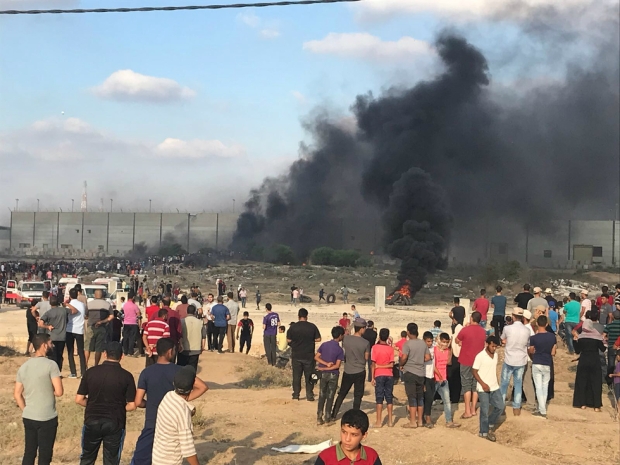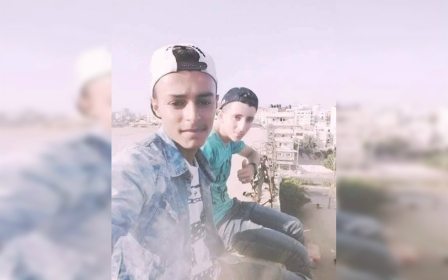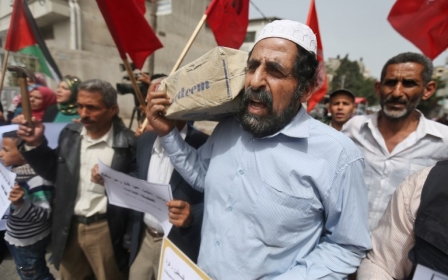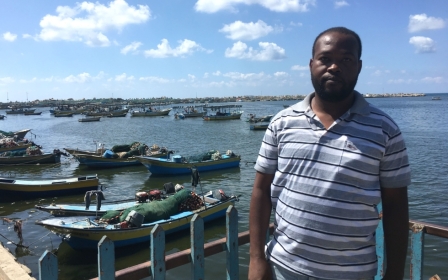Deadly waves of Israeli strikes pound Gaza
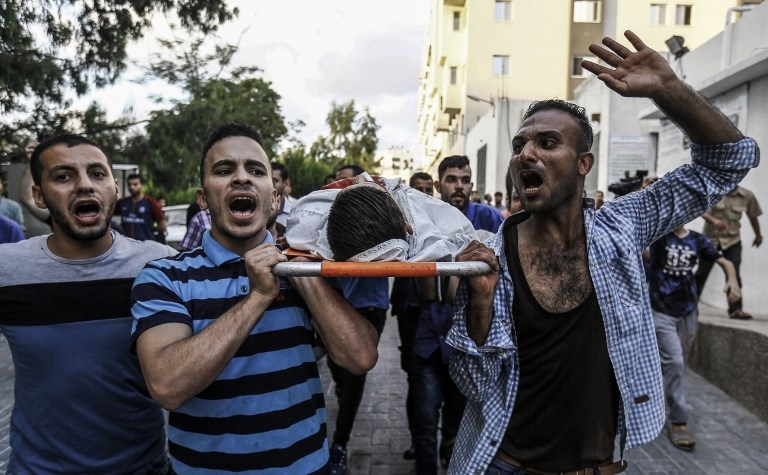
Israeli forces have launched strikes across the Gaza Strip after an exchange of fire with fighters belonging to Hamas's armed wing.
The offensive comes after four Palestinians were killed by Israel after fighters from the Izzedine al-Qassam Brigades shot at Israeli forces manning the Gaza border.
Israel's army said that "IDF jet planes started an extensive attack on terror attacks related to the Hamas terror organisation throughout the Gaza Strip."
An Israeli soldier was shot dead by Palestinian gunfire on the Gaza border on Friday, the army said, raising fears of a broader conflict with Gaza.
This latest escalation came after weekly Friday protests by Palestinians on the Gaza buffer zone as 120 protesters were wounded in the violence, according to the local health ministry.
Israeli Defence Minister Avigdor Lieberman warned of a "much tougher" response to any fresh missile fire by Hamas after the army reported "three launches" from the territory, two of which were intercepted.
However, a Hamas spokesperson said late on Friday that Israel and Hamas have agreed to restore calm.
"With Egyptian and United Nations efforts it has been agreed to return to the era of calm between [Israel] and Palestinian factions," Hamas spokesman Fawzi Barhoum told Reuters.
The Gaza health ministry said Israeli shelling killed four Palestinians and severely wounded three others east of the town of Khan Younis on Friday afternoon.
Among the dead was Mahmoud Khalil Qishta, 23, killed in the east of Rafah; Mohammed Riyad Farahza, 31, and Shahban Rihab Abu Khater, 26, both killed in Khan Younis.
Mohammed Badwan had also died after being shot dead by Israeli forces in Gaza City on Friday.
Hamas's armed wing, the Izzedine al-Qassam Brigades, confirmed that the four killed were members of the group.
The deaths came soon after the Israeli army reported that shots were fired from Gaza towards southern Israel.
Israeli army aircraft and tanks hit "military targets throughout the Gaza Strip," the army said in a statement on social media, likely referring to Hamas outposts.
Palestinian news outlets shared photos reportedly showing the aftermath of Israeli strikes in central Gaza.
The violence occurred as Palestinians were demonstrating along the fence separating Gaza from Israel for the 17th consecutive Friday as part of the Great March of Return.
The Great March of Return calls for an end to the 11-year Israeli-led blockade on Gaza and for Palestinian refugees' right of return to the lands that their families fled during the establishment of the state of Israel in 1948.
Since the march began on 30 March, the Israeli army has killed at least 142 Palestinians and wounded more than 16,000, Gaza health ministry spokesman Ashraf al-Qidra said in a statement on Thursday.
Friday's violence cames less than a week after a series of Israeli air strikes on 14 July, one of which killed two Palestinian teenagers in Gaza City.
Israel has stepped up its use of air strikes in Gaza, in addition to tightening the 11-year siege, with the purported aim of dissuading Hamas from sending incendiary kites and balloons over into Israel.
Israeli authorities hold Hamas responsible for the Great March of Return, a view that the campaign's organisers have rejected.
Israeli officials have notably been outraged by some demonstrators' use of kites and balloons set on fire, which they fly over the separation fence into Israel, claiming that the kites have sparked fires damaging nearly 3,000 hectares of farmlands and forests.
Palestinians view the inexpensive flying devices to be a tool of resistance against the well-armed Israeli forces stationed behind the fence that have killed scores of protesters and wounded thousands. No Israeli casualties have been recorded.
Israeli media has reported that despite Hamas' instructions to its members to stop sending kites, kite fliers unaffiliated with the group have rejected the call, vowing to continue until the crippling Israeli-led blockade on Gaza was lifted.
Earlier on Friday, Lieberman accused Hamas of "forcefully leading us to a situation in which we have no choice, to a situation in which we will have to embark on a wide scale and painful military operation".
Tel Aviv also claimed that Israeli forces had so far been "conducting [them]selves responsibly and with restraint".
New MEE newsletter: Jerusalem Dispatch
Sign up to get the latest insights and analysis on Israel-Palestine, alongside Turkey Unpacked and other MEE newsletters
Middle East Eye delivers independent and unrivalled coverage and analysis of the Middle East, North Africa and beyond. To learn more about republishing this content and the associated fees, please fill out this form. More about MEE can be found here.


